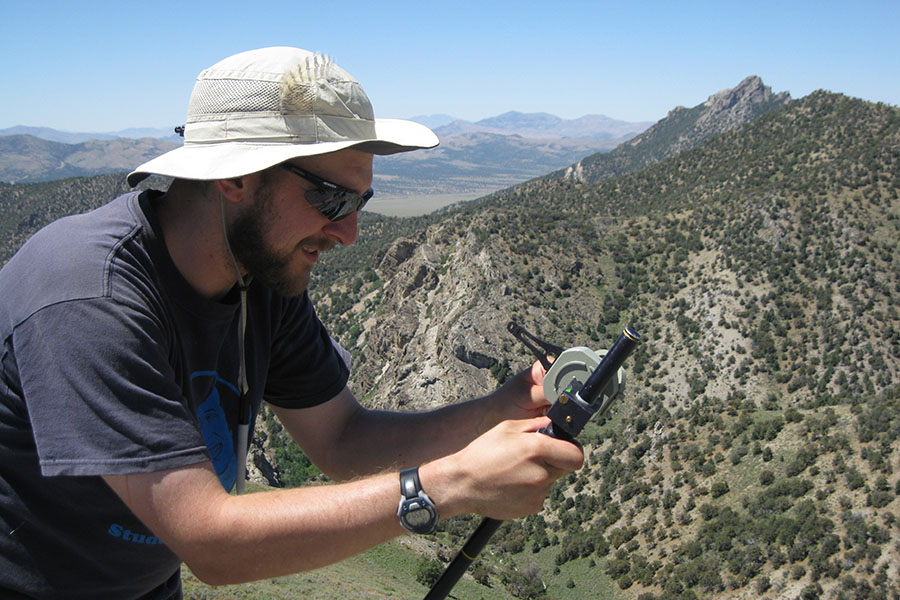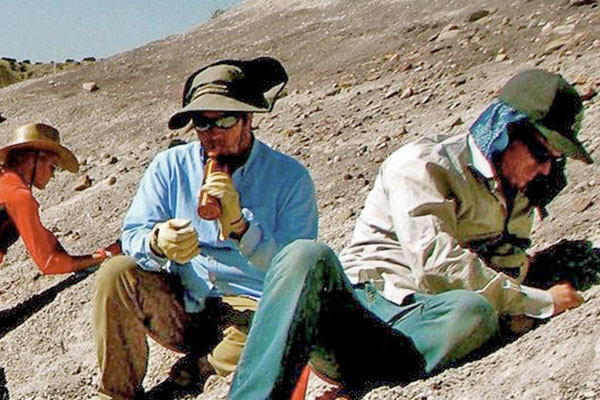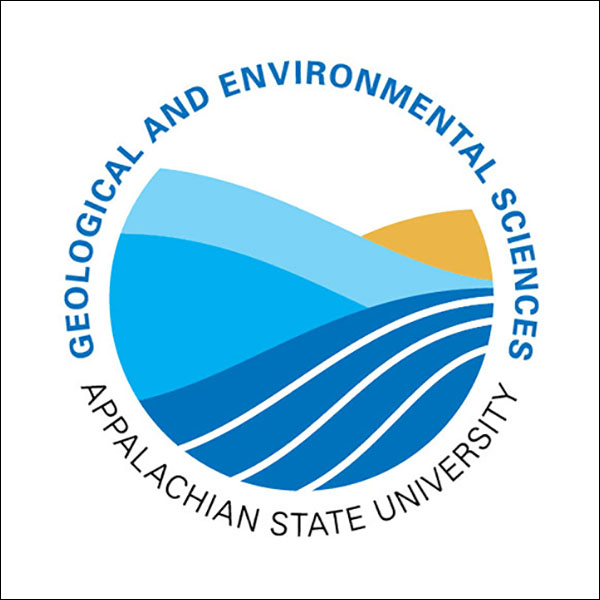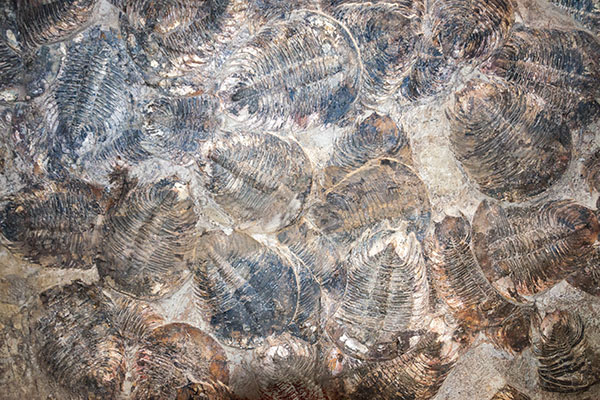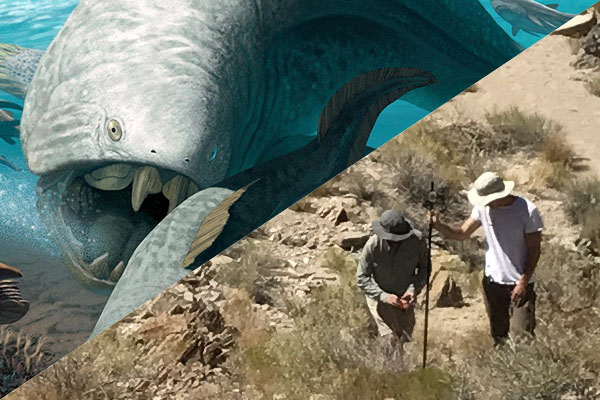BOONE, N.C. — Dr. Cole Edwards’ specialty is investigating the causes of life and death — with evidence that is about 400 million years old.
Edwards, an assistant professor in Appalachian State University’s Department of Geological and Environmental Sciences, teaches courses in historical geology and paleontology — the study of life in past geological periods as represented in fossil remains.
“I don’t consider myself a traditional paleontologist, though,” Edwards said. “A traditional paleontologist might look at a rock record and say, ‘Look at all those critters; aren’t they neat?’ But I look at them and wonder why the critters are there in the first place and why did they die.”
Edwards’ research focuses on the interaction between the biosphere and the environment and their evolution through Earth’s history.
In 2017, Edwards was awarded a grant from The Paleontological Society to study one of the top five mass extinctions — the Devonian period, or about 372 million years ago.
“The cause of that extinction is not clear. My proposal is to test to see if anoxia (lack of oxygen) occurred before or after the extinction, to determine if that was the cause,” he said.
Edwards led Appalachian students in fieldwork in Nevada and Utah, where he said they “climbed mountains and gathered rock samples at different intervals and brought them back to measure isotopes.” He added, “We found the anoxia occurred after the main Devonian extinction event, so lack of oxygen wasn’t the main killer.”
Why does this matter to a modern audience?
Edwards explained, “As geologists living today, we have the advantage of seeing what causes and effects look like through time. If we can study an effect — such as a mass extinction — and link it to a cause, we can use that information to understand conditions today.
“What does it mean if oceans are warming, if they’re becoming more acidic, or if carbon dioxide levels are increasing? We can make better predictions about the effects.”
Involving students in his research is important to Edwards, he said. “I had inspirational professors when I was a student, and they got me excited about geology. As an undergrad, I had mentors that worked with me on research projects, and now I’m excited to be teaching and mentoring students,” he shared.
Edwards said Appalachian introduces research opportunities at the undergraduate level, unlike many institutions that concentrate research among the master’s and/or Ph.D. levels. “Here, our geology program is only for undergrads, so we’re able to offer students opportunities to gather samples in the field, work in the lab and analyze the data,” he said. “I’m working with the students, teaching them skills to go on to grad school or go to work in the private sector.”
While Edwards leads students on fieldwork trips to the Southwestern U.S., Bermuda, Iceland and other global areas, the location of Appalachian is ideal for local excursions.
“During our labs, we can go where sections of mountains have been blasted away to make way for highways. There, we can see and study a cross section of the earth.”
“Appalachian’s geology department is healthy, thriving and growing,” Edwards said. “Fieldwork is stressed here. Students can study a picture of a cliff with interesting geological layers, but that doesn’t compare with them actually being out there, taking it in and interpreting it for themselves.”
What do you think?
Share your feedback on this story.
About the Department of Geological and Environmental Sciences
Located in Western North Carolina, Appalachian State University provides the perfect setting to study geological and environmental sciences. The Department of Geological and Environmental Sciences provides students with a solid foundation on which to prepare for graduate school or build successful careers as scientists, consultants and secondary education teachers. The department offers six degree options in geology and two degree options in environmental science. Learn more at https://earth.appstate.edu.
About the College of Arts and Sciences
The College of Arts and Sciences (CAS) at Appalachian State University is home to 17 academic departments, two centers and one residential college. These units span the humanities and the social, mathematical and natural sciences. CAS aims to develop a distinctive identity built upon our university's strengths, traditions and locations. The college’s values lie not only in service to the university and local community, but through inspiring, training, educating and sustaining the development of its students as global citizens. More than 6,800 student majors are enrolled in the college. As the college is also largely responsible for implementing App State’s general education curriculum, it is heavily involved in the education of all students at the university, including those pursuing majors in other colleges. Learn more at https://cas.appstate.edu.
About Appalachian State University
As a premier public institution, Appalachian State University prepares students to lead purposeful lives. App State is one of 17 campuses in the University of North Carolina System, with a national reputation for innovative teaching and opening access to a high-quality, cost-effective education. The university enrolls more than 21,000 students, has a low student-to-faculty ratio and offers more than 150 undergraduate and 80 graduate majors at its Boone and Hickory campuses and through App State Online. Learn more at https://www.appstate.edu.
